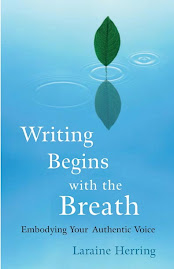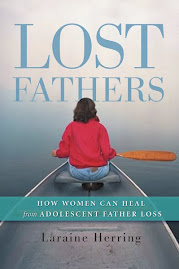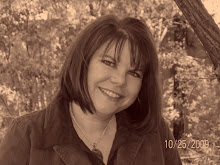Friday, April 15, 2011
Elvis and Me
Last night, we saw Robert Shaw and the Lonely Street Band's Tribute to Young Elvis at the Elk's Theater. I'm a sucker for Elvis. Any Elvis -- young Elvis, old Elvis, hot Elvis, not-so-hot Elvis, gospel Elvis, rock and roll Elvis, blues Elvis, ballad Elvis, bad actor Elvis, soldier Elvis, Las Vegas Elvis, Elvis in a tortilla...
Elvis died the year after my dad got sick. Our house had every Elvis LP imaginable. My sister and I would stand on the top of the itchy yellow and black sofa, jump rope microphones in our hands, teddy bears near by, singing "Teddy Bear", tossing the bears to the ceiling at the finale. The first time I heard him sing "Old Shep" I cried. When Elvis died, I was 9. My dad had almost died the year before. Our whole lives had been turned upside down. In the south, Elvis walked hand in hand with Jesus. The King Could Not Die. But he did, and in the way of things, a decade later, my dad did too. Elvis was 42; my dad was 46.
I'm 42 now, and at the event last night, I was one of the youngest people there. The man sitting next to me wore a silver snap-button shirt, the final three buttons open because his belly had exceeded the width of the fabric. In front of me, women my mother's age joined hands, singing with Robert Shaw. When Robert sang "It's Now or Never", the man next to me, who was there alone, whispered, "I played that a million times."
The audience screamed for young Mr. Shaw. Screamed. Women using walkers. Women with mastectomies. Women with thinning, beehived hair. Women stood for young Mr. Shaw. Women with grandchildren. Dead husbands. Dead children. They stood and they screamed and they stomped and they danced, leaping for the teddy bear he threw to the audience. Grandmothers. Great grandmothers. Screaming. Stomping. Dancing.
Mr. Shaw did an Ed Sullivan imitation. The audience laughed. They'd watched the show when it aired. To hell with censorship, said young Mr. Shaw, and commenced the wiggle.
Grandmothers.
Screamed.
Stomped.
Danced.
Swollen ankles dissolved into lacy bobby socks. Orthopedic shoes tip-toed into saddle shoes. The women's eyes were sparkling -- with tears, with love, with memory.
"I know there's some men out there," said young Mr. Shaw. "Just can't hear you."
The man next to me hooted, exposed belly wiggling.
I was twenty to thirty years younger than most of the audience. I knew all the songs. I hadn't played the 45s in my bedroom over and over or written letters to him when he was serving in Germany or cried when he married Priscilla, but Elvis was the soundtrack of my childhood as it was the soundtrack to their adolescence and young adulthood. Elvis made it OK. Elvis gave the sense of hope when there wasn't any; the sense of rhythm to a stiffening people; and he offered faith. Whether you believed or not, you believed when Elvis sang that gospel. No matter what else happened in his life, no matter how sick he got, when he slipped into music, he transported himself and everyone with him. He was living art.
After my dad's first heart attack, he spent some time talking to men at the Salvation Army. He brought Elvis' gospel LPs and played "Peace in the Valley" and tried to convince everyone that it was possible. Over time, it became less possible, and we moved away from the South, from Elvis, from who we were before Elvis died. Elvis may have lived on, grown stronger perhaps, in death, but it didn't work that way for my dad. Each year that passes brings fewer people who ever met my dad, ever knew him, ever loved him.
Last night, hundreds of us stood for young Mr. Shaw, many of us crying, for the gift of two hours suspended in time. For a spit of a second, we were all who we were when we first heard the sounds. We had not yet had our hearts broken and our bodies injured. We had not yet left friends behind, watched neighborhoods disintegrate, spent days in Hospice saying good-bye. We were girls and we were boys with the fire of all the world in front of us.
Perhaps now, because we have been marked, wrinkled, divorced, denied, loved, spurned, broken, built back up, perhaps now we could listen to young Mr. Shaw and see the beauty of the fleeting moment of youth. What we thought would never leave, leaves. This is true of everything. And when you really know that in your bones, you see that spark, that hip swivel, that sneer; you hear the seduction of the guitar's strings, and you pay attention to it. You know it's precious and primal and if there is anything divine in the world, it is in that spark. You look around the audience at the men with faraway eyes, the women with open mouths -- this group of people that you know differs as much as people can differ on religion and politics -- but they are standing up together. They are clapping together. We are young. We are young. We may have nothing else in common but we have Elvis and his promise of passion and desire and kindness.
We are young.
We are old.
We are beautiful and we are screaming together, not at each other.
The power of art brings that out and lets the rest fall away under our dancing feet.
Viva, viva, us all.
The video below is "young" Elvis singing "King Creole".
The video below is the "old" Elvis singing "How Great Thou Art".
Monday, April 11, 2011
When Expectations Collide with Reality ... it ain't pretty
"All artists are willing to suffer for their work. But why are so few prepared
to learn to draw?"- Banksy
to learn to draw?"- Banksy
It's April in academia. The birds are singing. The snow is still falling. The flowers are blooming (and freezing). And yes, as usual, it's the month of dead and dying family members from the sweet mouths of our students. If you've got a kid in college, be careful when you start the car. But most of all, April is the month when students' expectations crash and burn in the pyre of self-loathing and (perish the thought) work.
Here's what happens. The semester has almost ended (yes, yay, jumping in the halls, dancing in the streets, please oh please be over) and the students, those who do care and who have been coming to class and who have been learning and struggling, come face to face with the truth of: I haven't "gotten it" yet.
They think writing is something one can "get" in fifteen weeks. Nay, sooner, since they have been writing for 20, 30, 40, 50 years by this point. How hard is it to arrange words? They had visions of where they would be by now, and although those who've shown up and participated have indeed made lots of progress, it doesn't look like what they thought it would.
It never does. The tricky net of expectations has strangled many before them and will strangle many more after them. A semester is such an arbitrary amount of time, and it is such an insignificant amount of time in a life, that it seems impossible that we can teach anything at all of substance in a 15 week period. The art of writing is not a 15 week program. Yes, you can learn some things about craft in 15 weeks. Yes, you can read some forms of literature you might never have looked at before, and yes, you can stick your toes into the snake-infested swamp of revision. But you may find at the end of the semester you feel like you're in a worse place than you were when you started.
You're not. You're just beginning to realize what you don't know and what you didn't even know to ask about. You're just starting to see the ways literature can be written and read. You're just starting to see that writing is not a task ... it is a path. And for some of you, that ain't what you signed up for.
I get it. I really do. You're accustomed to outcomes and measurable skill sets. You're a bright person. You should be able to "get" this. Writers know that writing is a lifelong pursuit. That there is no one-day epiphany that solves every story you'll ever write. Each story is a teacher. Each poem a Zen master. Writing one story well guarantees nothing for any future story. Writing one story poorly does not sentence you to a life of bad writing.
If I had all the time in the world to teach writing in the way I truly felt was best, and if I had only students who were sincere in their educational pursuits, we would begin with the sentence, and we would not leave the sentence until we understood the nuance of the comma, the position of the verb. I haven't figured out any practical way to teach like this. Writers must come up with every aspect of the work first before learning the craft. To only address theory without practice is to spin and spin and spin. So instead, we write drafts and we talk about them and only after many years of writing practice do most writers come to realize the value of word choices, sentence structures, and paragraph lengths. The subtlety of rhythm contained within the way an author puts a sentence together. The places where the author left space for the reader to breathe. These things appear second nature when you read, but they are the result of thought and commitment on the part of the writer.
Students, if you're serious about "being a writer", remember these things:
- You will always be a beginner.
- There will always be people "better" than you.
- You will always be alone with the blank page. No one can be there with you. Figure out how to be OK with that.
- Take time away from writing. You can't produce twenty-four hours a day.
- Remember the joy and sense of play that first brought you to language. If you lose that, you're adrift.
- Study sentences. Study grammar. Look at books critically through the lens of a writer, rather than a reader. Start to get out of your own way when reading. It doesn't matter whether you like or don't like the work. Look at how the work was put together. That'll give you insight into craft.
- Practice detachment from your writing. The tighter you attach to it and to your construct of what it means, the less chance you have of truly developing it into something that can breathe on its own.
- There's no mastery - just deeper and deeper questioning. The more open you are to the questions, the more ease your writing practice will provide. If you attach and hold tight to wanting to know things and figure everything out, eventually you'll exhaust yourself. There's no figuring out. There's just experiencing and observing.
As you walk the path with your writing, hold its hand loosely. Notice the wind and the earth beneath you, and let this observation be enough.
Subscribe to:
Posts (Atom)












